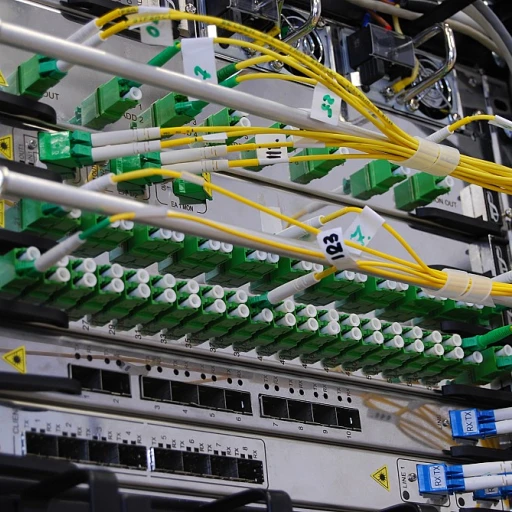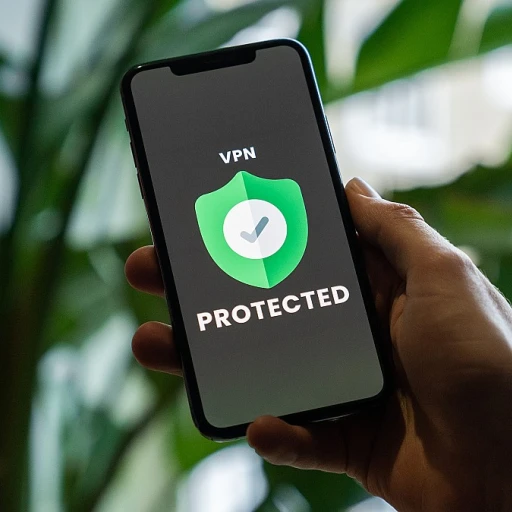
Understanding 5G Technology
Unveiling the Core of 5G Technology
5G technology is not just an upgrade from its predecessor, 4G; it represents a revolutionary leap in wireless connectivity. At its core, 5G offers unprecedented speed and reliability, transforming how businesses interact with the digital world. This next-generation network promises to deliver faster data transfer rates, lower latency, and increased capacity, which are crucial for modern business operations.
For businesses, the implications of 5G are vast. With its ability to support a massive number of connected devices, 5G will enhance the Internet of Things (IoT) ecosystem, enabling real-time data processing and seamless integration of smart devices. This connectivity boost is particularly beneficial for small businesses looking to leverage technology for competitive advantage.
Moreover, 5G's lower latency is a game-changer for applications requiring real-time responses, such as autonomous vehicles and remote healthcare services. The reduced delay in data transmission ensures that businesses can operate more efficiently, with improved communication and faster decision-making processes.
As businesses evaluate the potential of 5G, it's essential to understand how this technology can integrate with existing systems and networks. The transition to 5G will require strategic planning and consideration of factors such as network infrastructure and compatibility with current devices. For more insights on how 5G is shaping the future of software development, you can explore how 5G is shaping the future of software development.
Benefits of 5G for Businesses
Enhancing Business Connectivity
5G technology is set to revolutionize business connectivity by providing faster and more reliable wireless internet. This advancement will enable businesses to operate with lower latency, ensuring that data is transferred in real time. The improved speed and efficiency of 5G networks will help reduce downtime and enhance the overall performance of business operations.
Empowering Small Businesses
For small businesses, 5G offers the potential to level the playing field. With access to high-speed internet and robust wireless broadband, small businesses can compete more effectively with larger enterprises. The increased connectivity will allow them to utilize cloud services and other technology solutions that were previously out of reach due to limited network capabilities.
Facilitating IoT and Connected Devices
The Internet of Things (IoT) is another area where 5G will have a significant impact. Businesses will be able to connect more devices simultaneously without compromising on speed or reliability. This will open up new opportunities for innovation and efficiency, as connected devices can communicate seamlessly across private networks. For more insights on how this transformation is shaping the future of work, you can explore how edge computing is transforming the future of work.
Improving Business Insights
With the enhanced data capabilities of 5G, businesses will gain full access to real-time analytics and insights. This will enable them to make informed decisions quickly, optimizing their operations and strategies. The ability to process and analyze large volumes of data efficiently will be a game-changer for businesses looking to stay ahead in a competitive market.
Challenges and Considerations
Overcoming the Hurdles of 5G Integration
While 5G technology promises to revolutionize business operations with its high-speed connectivity and lower latency, there are several challenges and considerations that businesses must address before fully embracing this wireless broadband revolution. Understanding these hurdles is crucial for ensuring a smooth transition and maximizing the benefits of 5G for your business.
One of the primary challenges is the infrastructure investment required to support 5G networks. Unlike previous generations, 5G requires a dense network of small cell towers to deliver its full potential. This means businesses, especially those in rural or less developed areas, may face significant costs and logistical challenges in upgrading their existing network infrastructure.
Another consideration is the compatibility of existing devices with 5G technology. Not all devices are equipped to handle the advanced capabilities of 5G, which may necessitate additional investment in new hardware. Businesses need to evaluate whether their current devices can support the increased data speeds and connectivity that 5G offers.
Security is also a major concern as 5G expands the attack surface for cyber threats. With more devices connected to the internet of things (IoT) and increased data flow, businesses must implement robust security measures to protect their networks and sensitive information. This includes investing in advanced cybersecurity solutions and regularly updating security protocols.
Moreover, the transition to 5G can impact software development processes. Developers need to adapt to the new capabilities and limitations of 5G, which may require retraining and rethinking current development strategies. This shift can affect timelines and budgets, making it essential for businesses to plan accordingly.
Finally, businesses must consider the regulatory landscape surrounding 5G deployment. Different regions may have varying regulations and standards, which can impact how quickly and effectively businesses can implement 5G solutions. Staying informed about these regulations is crucial for ensuring compliance and avoiding potential legal issues.
In conclusion, while 5G offers exciting opportunities for enhancing business connectivity and operations, it also presents several challenges that must be carefully navigated. By addressing these considerations, businesses can better position themselves to take full advantage of the transformative power of 5G technology.
Impact on Software Development
Software Development in the 5G Era
The advent of 5G technology is set to revolutionize software development, offering unprecedented opportunities for innovation and efficiency. As businesses transition to this new era of connectivity, the impact on software development is profound, reshaping how applications are designed, deployed, and utilized.
5G's ultra-fast wireless internet and lower latency are game-changers for developers. With real-time data processing capabilities, software can now deliver seamless experiences, enhancing business operations and customer interactions. This is particularly beneficial for small businesses that rely on agile solutions to stay competitive.
Moreover, the enhanced connectivity of 5G networks supports the proliferation of IoT devices, enabling developers to create more sophisticated and interconnected applications. This connectivity allows for the integration of things IoT into business processes, providing businesses with deeper insights and more efficient operations.
Cloud services will also see significant advancements. With 5G, cloud-based applications can operate with greater speed and reliability, offering full access to data and services without the traditional constraints of bandwidth limitations. This shift will help reduce the time and resources needed for software deployment, making it easier for businesses to adopt new technologies.
However, developers must also consider the challenges and considerations associated with 5G, such as network security and the need for robust private networks. As businesses evaluate their 5G strategies, understanding these factors is crucial to leveraging the full potential of this transformative technology.
Industries Poised for Transformation
Industries Ready for a 5G Revolution
The advent of 5G technology is set to transform various industries by enhancing business connectivity and enabling new possibilities. As businesses explore the potential of 5G, several sectors stand out as particularly poised for transformation.
Manufacturing and Industrial IoT
Manufacturing industries are expected to benefit significantly from 5G, particularly through the integration of the Internet of Things (IoT). With lower latency and real-time data processing, manufacturers can optimize operations, improve efficiency, and reduce downtime. Wireless internet connectivity will enable seamless communication between devices, enhancing the capabilities of smart factories.
Healthcare and Telemedicine
5G technology will revolutionize healthcare by providing faster and more reliable wireless broadband services. This will facilitate telemedicine, allowing healthcare providers to offer remote consultations and real-time monitoring. The improved connectivity will also support the use of advanced medical devices, enhancing patient care and outcomes.
Transportation and Logistics
The transportation sector will experience significant advancements with 5G networks. Enhanced connectivity will improve vehicle-to-vehicle communication, leading to safer and more efficient transportation systems. Logistics companies will benefit from real-time tracking and data analysis, optimizing routes and reducing delivery times.
Entertainment and Media
With 5G, the entertainment industry will see a surge in high-quality streaming services and immersive experiences. Faster download speeds and lower latency will allow for seamless streaming of high-definition content, enhancing user experiences. Additionally, augmented reality (AR) and virtual reality (VR) applications will become more accessible, offering new forms of entertainment.
Retail and E-commerce
Retail businesses will leverage 5G to enhance customer experiences through personalized services and real-time business insights. Improved connectivity will support advanced analytics and IoT devices, enabling retailers to offer tailored solutions and streamline operations. Small businesses, in particular, will find new opportunities to compete in the digital marketplace.
As these industries embrace 5G technology, businesses must evaluate how this connectivity can be integrated into their operations to drive innovation and growth. The potential for transformation is vast, and those who adapt quickly will likely gain a competitive edge in their respective fields.
Evaluating 5G for Your Business
Assessing the Fit for Your Business
Determining whether 5G technology is the right fit for your business involves a careful evaluation of several factors. As businesses increasingly rely on wireless internet and connectivity solutions, understanding the specific needs of your operations is crucial. Here’s how you can evaluate the potential impact of 5G on your business:
- Network Requirements: Consider the current and future network demands of your business. If your operations require real-time data processing or involve a significant number of connected devices, 5G's lower latency and higher bandwidth could be beneficial.
- Business Size and Scale: Small businesses might find 5G particularly advantageous for enhancing business connectivity without the need for extensive infrastructure. Evaluate whether the scalability of 5G networks aligns with your growth plans.
- Industry-Specific Needs: Some industries are poised for transformation with 5G, such as manufacturing, healthcare, and logistics. Assess whether your industry is one of those that will benefit significantly from enhanced wireless broadband and private networks.
- Cost Considerations: Analyze the cost implications of integrating 5G into your business operations. While 5G can help reduce operational costs in the long run, initial investments in compatible devices and infrastructure should be considered.
- Technology Integration: Evaluate how 5G will integrate with your existing technology stack. The transition to 5G should complement your current systems and enhance your business internet capabilities.
By thoroughly assessing these factors, businesses can make informed decisions about adopting 5G technology. This evaluation will not only help optimize your network but also ensure that your business is well-positioned to leverage the full potential of 5G services.















